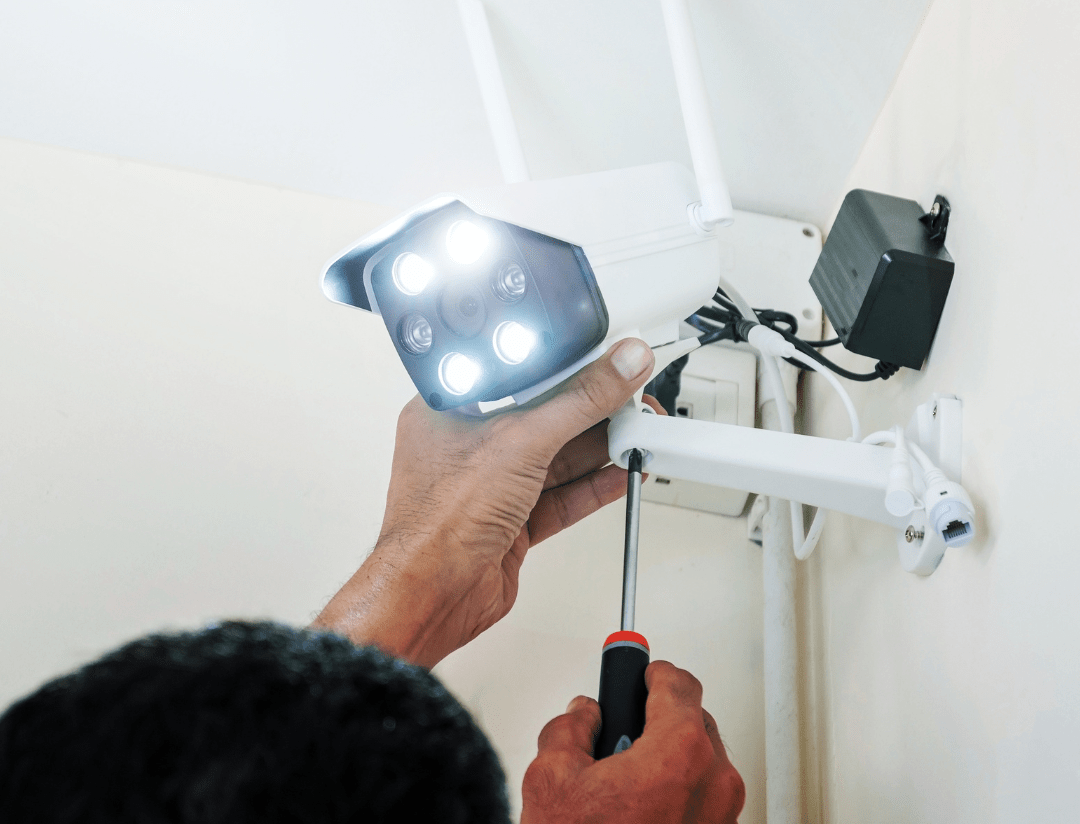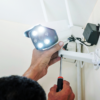If you are struggling to choose between a wireless or wired CCTV camera for your building, this guide will help you decide which is suitable and why.
Wireless CCTV cameras do not need wires, they work with Wi-Fi network so its easier to install anywhere you want and easier to install. Wired CCTV cameras are traditional cameras that needs to be plugged into the wall and requires wires.
Let’s have a closer look at the pros and cons, costs, installation differences and accessibility of each.
| Feature | Wired security cameras | Wireless security cameras |
| Reliability | Highly reliable; unaffected by Wi-Fi or signal issues. | Dependent on Wi-Fi; can be less stable. |
| Image quality | Superior quality; clear and uninterrupted data transmission. | Good quality but may suffer from signal interference. |
| Security | More secure; closed network reduces hacking risks. | Less secure; vulnerable to wireless hacking. |
| Flexibility in fluid environments | Requires permanent installation; less flexible for temporary setups. | Easily movable; ideal for temporary or rental spaces. |
| Usability in remote or inaccessible locations | Hard to install in challenging locations. | Ideal for areas where cabling is impractical. |
| Deployment speed | Slower to install; suited for long-term use. | Quick to set up; perfect for immediate needs. |
| Budget considerations | Generally more costly due to setup and equipment. | More affordable; good for budget-conscious users. |
Privacy concerns: Wired vs wireless security cameras
Wireless security cameras are often considered more discreet because they don't require visible wires running through your home. This can be particularly important in areas where privacy is a major concern, especially indoors. Wired security cameras might be more noticeable due to the visible cables. However, there are ways to route these cables discreetly:
Budget considerations
Wired security cameras typically have higher upfront costs due to the installation of cables, power outlets and other infrastructure. This can be especially expensive for larger homes or businesses. Wireless security cameras generally have lower upfront costs as they don't require extensive wiring. This makes them more accessible to those on a tight budget.
Maintenance
Wired security cameras often have lower ongoing costs as they don't require frequent battery replacements or software updates. They are typically powered by AC outlets, which are readily available in most homes and businesses. Wireless security cameras have higher ongoing costs, especially if they are battery-powered. Battery replacement can be frequent, depending on usage and battery quality. Additionally, wireless cameras may require regular software updates to maintain optimal performance and security.
Installation complexity
Wireless cameras - Ease of installation: Wireless cameras are mostly easier to install as they don't require physical wiring. This makes them a good option for homeowners or business owners who are not comfortable with DIY electrical work. Wi-Fi signal requirements: Wireless cameras rely on a strong Wi-Fi signal for reliable operation. If your home or business has weak Wi-Fi coverage, you may need to install additional Wi-Fi access points.
Wired cameras Installation complexity: Wired cameras can be more complex to install, as they involve running cables through walls, ceilings, or floors. This may require professional installation services, especially for larger homes or businesses. Flexibility: Wired cameras offer greater flexibility in terms of placement, as they can be installed almost anywhere there is a power outlet. This can be beneficial for monitoring areas that are difficult to reach with wireless cameras.





